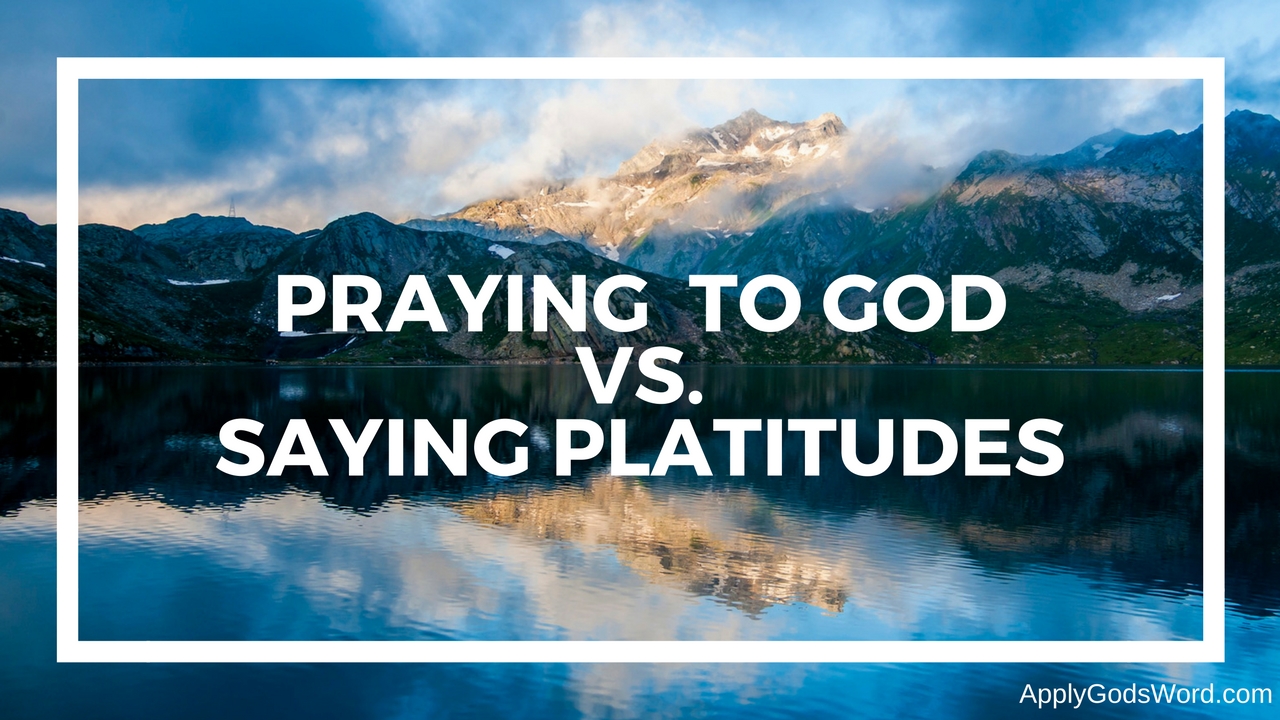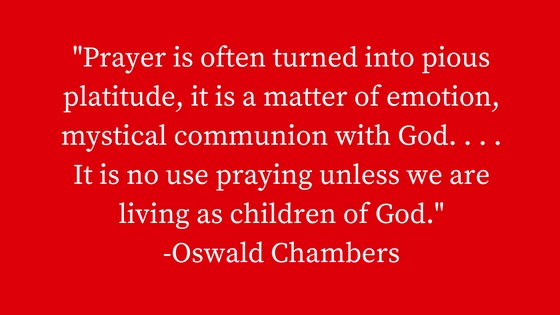
plat•i•tude, [plat-i-tood], noun
1. a plane, dry, or trite remark, especially one uttered as if it were fresh or profound. Synonym: cliché. Examples: “Everything happens for a reason.” “Be a team player.” “God works in mysterious ways.”
Is it bad to say the same prayer every night?
If you were to learn nothing else about prayer by reading the psalms it would be that prayer is meant to flow from the heart and it should be directed towards God as though he is really listening, because he is.
All Christians know prayer is good. Even if it’s just before meals here and there, odds are that if you are a believer you probably pray.
Usually we form some sort of habits in our prayers. We often pray during the same time of day, intercede for the same people, ask for the same things, and say it all in the same way. None of this is wrong. It’s often good to have rhythm and repetition to our prayers as it helps us remember important things we want to always pray about. Even reading classic prayers written by others can help us in knowing what to pray.
The danger comes when repetition, rhythm, or reciting turn into rituals. Speaking without a heart centered on God turns our prayers into platitudes that might as well not be spoken at all. So is it bad to pray the same prayer every night? No, but it is bad to “say” the same prayer every night without directing your words to God.
For example: Psalm 136 is a community prayer meant to be memorized and repeated as a group. Psalm 22 is a prayer ripped from the pages of David’s personal diary where he spills his heart out to God in stunning vulnerability. On the surface these two psalms could not be more different. But they are alike in that they are both examples of real prayer because they are prayed with a sober mind and directed to God.
“Dear God,” “thank you for this day,” “please keep us safe this day,” “thank you for this food,” and all the many other phrases we repeat in prayer are not wrong to pray but they are wrong to recite. For prayer to actually be prayer we must actually be speaking to God, not just saying religious platitudes that don’t mean anything because our hearts are not present.
And when you pray, do not heap up empty phrases as the Gentiles do, for they think that they will be heard for their many words.” (Matthew 6:7)
“The end of all things is at hand; therefore be self-controlled and sober-minded for the sake of your prayers.” (1 Peter 4:7).
Prayer is when you come into the presence of God, speaking and listening through the grace offered through the Holy Spirit. It’s a conversation. The conversation can be about the normal day you just had, or it can be an all out cry of a broken heart. Whatever the content, it should always be a real conversation where you are seeking to be as present to God as he is being present to you.
So is it bad to say the same prayer every night? Platitudes never make for good conversations, including in our conversations with God.
